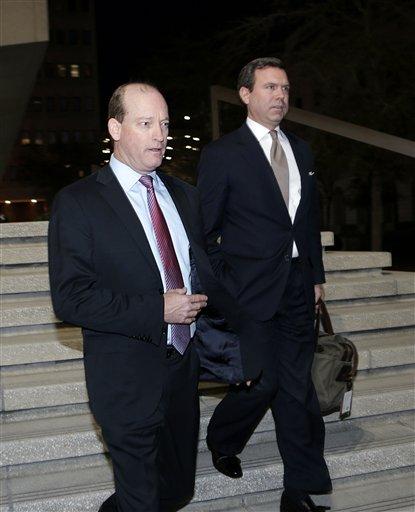The U.S. district court case between BP and federal and state officials began this week to resolve the loose ends of the Deepwater Horizon oil spill, which took the lives of 11 rig workers and spilled millions of gallons of oil into the Gulf of Mexico in 2010.
Faculty and students recently weighed in on the results of the oil spill and the impact it will have on Louisiana’s economy and the coast.
Wetland wildlife ecology professor Andrew Nyman has previous experience with oil spill research and said many people forget that crude oil is organic and has a historic presence in the environment.
“In the case of the spill, part of it is what the oil is, but the other part is how fast you get so much of it,” Nyman said.
Nyman compared the oil in the ecosystem to red wine and said if someone takes in a glass a day for a year, consequences will not be distinguished, but if someone takes in a year’s worth of wine in a day, consequences can be more serious.
“The same thing goes with the ecosystem; it is overwhelmed if it takes in too much,” Nyman said.
Michael Kaller, assistant professor in the School of Renewable Natural Resources, said the effects of the spill could last in fish for several decades, given that the fish in the Gulf are long-lived and can carry the exposure for a prolonged period of time.
He said there are not many reference points to see how long effects from the spill will last.
“What we know about this spill now is probably a fraction of what we will know in 20 years. Unfortunately it takes a long time to understand these things,” Kaller said.
General business junior Baker Benge said he feels no sympathy for BP and Transocean.
“I don’t feel bad for the oil company at all,” Benge said. “The spill absolutely reduced all the seafood industry that year and killed a lot of the immediate income.”
English junior Russell Berry said BP took the appropriate responsibility for the disaster.
“I feel like you can’t scare off the state’s economic development,” Berry said.
The case represents significant proposals for distributing the penalties.
BP has already paid several billions of dollars in penalties, including a $4 billion fine for the spill, according to CNN.
U.S. District Judge Carl Barbier will determine if Transocean, BP or other companies working with the project are responsible for the damages and how much the companies will have to pay in settlements.
In February 2012, Barbier deferred the trial to determine BP’s claim by business and individuals affected by the spill for settlement talks.
According to The New York Times, the total violation of the Clean Water Act could cost $16 billion, and this settlement will delegate which portion of the settlement each company will have to pay.
The Clean Water Act states it is unlawful to release pollutants in navigable water without a permit.
In 2011’s trial, Barbier ruled Transocean and Halliburton were only accountable for corrective damages, and BP had to cover $5 billion in damages to spill victims.
Additionally, BP has to pay for damages to plaintiffs, including casinos, banks and other companies hurt by the drilling moratorium after the spill that have not settled their claims.






